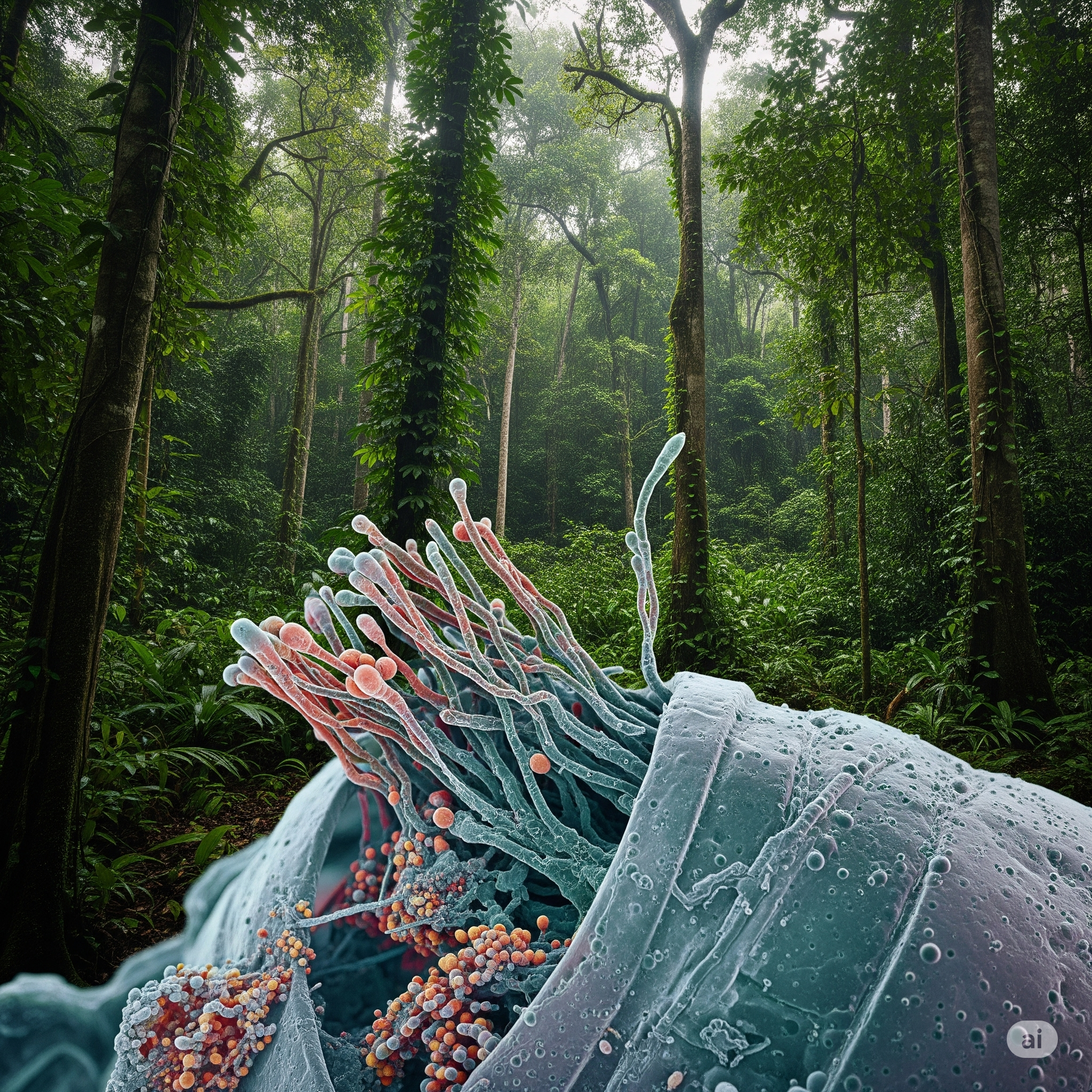Imagine a world where plastic waste doesn’t linger for centuries, but instead, gently returns to nature. This isn’t a distant dream, thanks to a remarkable discovery deep within the Amazon rainforest. Scientists have identified a fungus with an extraordinary appetite for plastic, offering a beacon of hope in our global struggle against pollution.
Discovered by a team of Yale University researchers, the fungus, known as Pestalotiopsis microspora, possesses the unique ability to break down polyurethane, a ubiquitous type of plastic found in countless products, from footwear to insulation. What makes this finding truly groundbreaking, as detailed in a study published in Applied and Environmental Microbiology by Jonathan R. Russell and colleagues, is its adaptability.
This resilient fungus can survive and thrive using plastic as its sole source of carbon, meaning it doesn’t require any other nutrients. Even more impressively, it can do its work in oxygen-free (anaerobic) environments, precisely the conditions found in the deep, dark layers of landfills where the majority of our plastic waste accumulates. As Pestalotiopsis microspora digests the plastic, it converts these synthetic polymers into harmless organic compounds, offering a genuinely natural and sustainable pathway for waste breakdown.
The secret to its plastic-chomping prowess lies in specialized enzymes produced by the fungus, which are capable of cleaving the tough chemical bonds that make plastics so durable. This incredible discovery has ignited global interest in the potential of fungi for bioremediation – the use of living organisms to clean up pollutants.
While significant research is still needed to scale this natural solution for industrial application, Pestalotiopsis microspora stands as a powerful testament to nature’s ingenuity. It’s a vivid reminder that the answers to some of our most pressing human-made problems might just be waiting to be discovered in the wild, helping us undo the environmental damage caused by our materials.
Reference:
- Biodegradation of Polyester Polyurethane by Endophytic Fungi by Jonathan R. Russell, Jeffrey Huang, Pria Anand, Kaury Kucera, Amanda G. Sandoval, Kathleen W. Dantzler, DaShawn Hickman, Justin Jee, Farrah M. Kimovec, David Koppstein, Daniel H. Marks, Paul A. Mittermiller, Salvador Joel Núñez, Marina Santiago, Maria A. Townes, Michael Vishnevetsky, Neely E. Williams, Mario Percy Núñez Vargas, Lori-Ann Boulanger, and Carol Bascom-Slack. Applied and Environmental Microbiology, September 2011, Volume 77, Issue 17, Pages 6076-6084.
https://pmc.ncbi.nlm.nih.gov/articles/PMC3165411/
